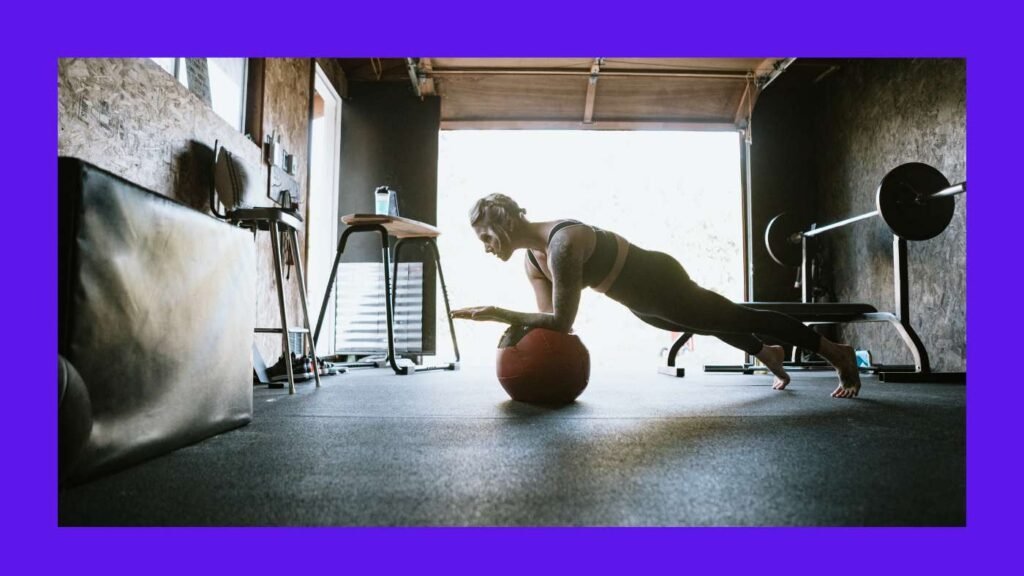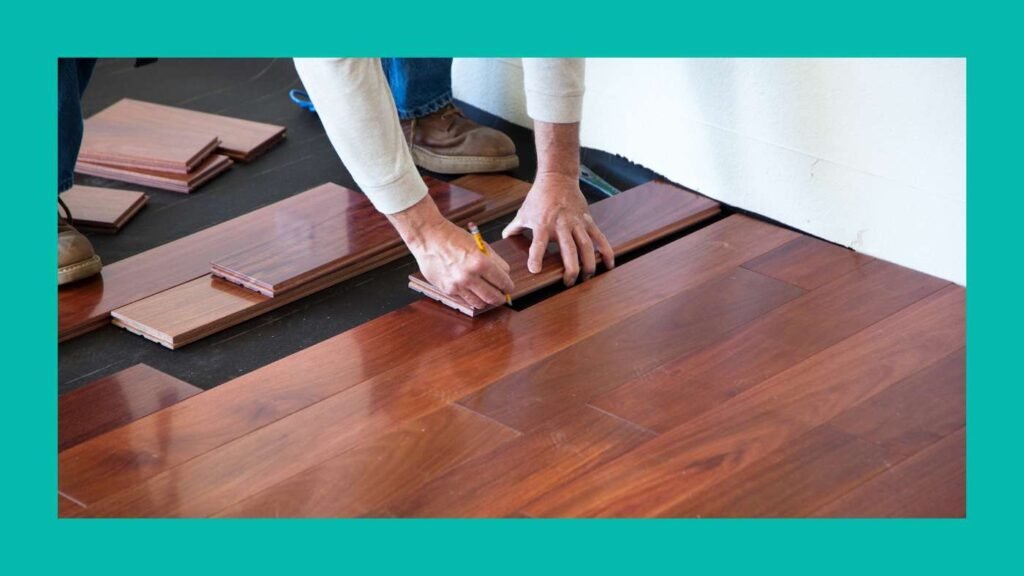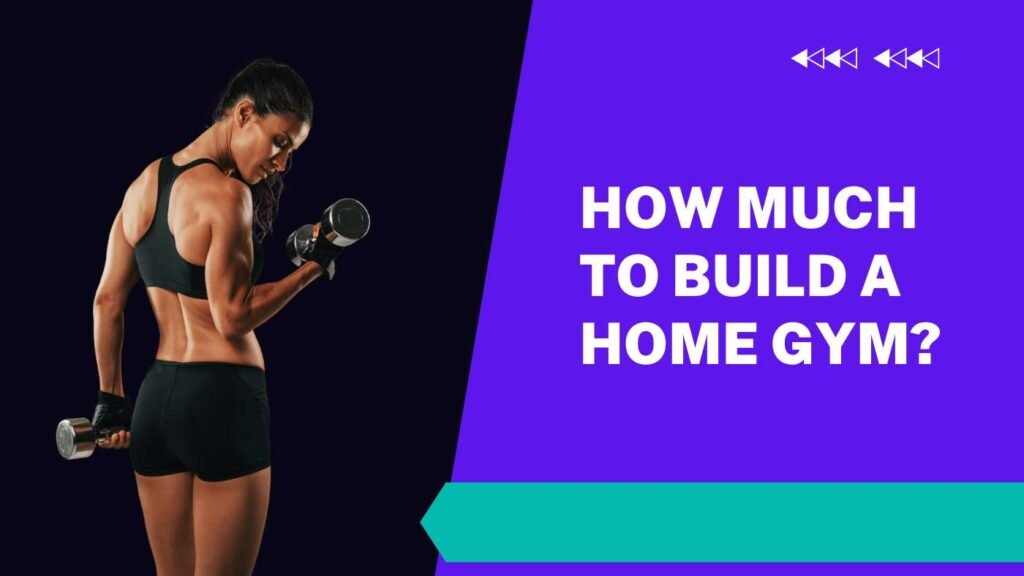Building a basic home gym can cost between $500 and $3,000, whereas a more elaborate setup can exceed $15,000. Priority equipment choice and quality significantly influence the total expense.
Deciding to create a fitness space in your own home can change your health and convenience. You need to determine the cost of a home gym first. Costs vary based on your goals and equipment.
A simple setup with essentials like weights, a bench, and a cardio machine may cost a few hundred dollars. For a full gym experience with high-end machines, flooring, and accessories, costs can add up fast.
Wondering ‘How Much to Build a Home Gym?’ Our guide gives clarity on budgeting for your workout space. Consider needs versus wants. You can build a functional home gym that fits your fitness journey without overspending.
Quick Answer
- Basic home gyms cost $500 to $3,000 for essentials like weights and a cardio machine.
- Elaborate setups with premium equipment and extras exceed $15,000.
- Key factors include space, goals, equipment quality, and flooring.
- Save by buying second-hand or during sales; expect ongoing maintenance costs.
Setting Your Fitness Goals

Before you create your home gym, focus on your goals. They will guide how much you spend. You might aim for weight loss, muscle building, or better endurance. Your goals shape your workout space.
Assessing Personal Needs
Your journey starts with a self-check. What is your fitness level now? What is your routine? Think about these to know your needs.
- Current fitness level
- Preferred types of exercise
- The time you can dedicate to training
- Space available at home
Aligning Goals With Equipment
Once you know your needs, match them with tools. Different goals need different equipment. Here is a quick guide:
| Goal | Essential Equipment |
|---|---|
| Weight Loss | Treadmill, Jump Rope |
| Muscle Gain | Weights, Resistance Bands |
| Endurance | Stationary Bike, Rowing Machine |
Selecting the right equipment helps you get the most from your home gym.
Space Considerations
Building your home gym starts with your space. It is about more than fitting equipment. You need a functional and motivating area. A good layout supports smooth workouts. Measure and optimize your space.
Measuring Your Available Space
Assess your space first. Use a tape measure. Note the room dimensions.
- Length, width, and height are key.
- Consider doorways, windows, and ceiling height.
- Fixed elements like columns or built-ins need measurements too.
Put these into a planning tool or sketch. This helps visualize your layout.
Optimizing Space For Efficiency

To make the most of your area, choose multi-functional equipment and storage.
| Equipment Type | Space Required |
|---|---|
| Free Weights | 20-50 sq ft |
| Treadmill | 30 sq ft |
| Stationary Bike | 10 sq ft |
Use wall mounts and corner shelves for storage. Combine exercises on one machine if you can. Place mats and benches in flexible spots.
Use vertical space. Install shelves above head height for items you use less. Choose equipment with collapsible features to store it after use.
Leave clearance space around equipment for safety. Think about your workout flow. Organize equipment to match it.
Budgeting Basics
Starting a home gym means smart financial planning. Set a budget to stay fit without overspending. Focus on quality over quantity.
Calculating Your Initial Budget
First, decide how much you can spend. Check your savings and earnings.
Remember, this start-up cost pays off with better health. Break it down like this:
- Essentials: Items you need from day one.
- Quality gear: Equipment that lasts longer.
- Space prep: Flooring and storage solutions.
Use this formula:Initial Budget = Essentials + Quality Gear + Space Prep
With a number set, explore options.
Planning For Long-term Investments
Think ahead. A home gym grows with you.
Plan for future gear. Here is how:
- Make a wish list of future gym items.
- Research their costs over time.
- Set aside small amounts monthly.
Invest in equipment that grows with your fitness. Durable items cost more now but save later.
Remember, a home gym adapts to you. Build it step by step.
Focus on your workout needs.
Plan smart and spend wisely. Your home gym will be worth it.
Essential Equipment
Building a home gym is exciting. You need the right gear to start. This section covers essential equipment for a full setup at home. See your home gym as a health investment. Choose quality and versatile items.
Explore costs and options for your fitness space. Check sites like Garage Gym Reviews for more ideas.
Costs Of Cardio Machines
Cardio machines are core to any gym. They improve heart health and burn calories.
- Treadmills: A basic model starts at $600, while advanced ones can exceed $3,000.
- Exercise Bikes: Budget options begin around $300 with high-end bikes up to $3,000+.
- Ellipticals: Find a solid elliptical for $500; premium models climb to $5,000+.
- Rowing Machines: Entry-level rowers cost about $500, with premium models reaching $3,000+.
Weights And Strength Training Gear
Strength training builds muscles and boosts endurance. You need durable weights.
| Equipment | Price Range |
|---|---|
| Dumbbells | $15 – $400 (set) |
| Barbells | $60 – $400 |
| Weight Benches | $60 – $600 |
| Power Racks | $400 – $2,000+ |
| Weight Plates | $2 – $6 per lb (new) |
Functional Training Tools
These tools boost agility and flexibility. They improve overall fitness.
- Kettlebells: Cost between $15-$200, depending on weight and quality.
- Medicine Balls: Priced from $25-$120. They are ideal for core workouts.
- Resistance Bands: A set ranges from $15-$60, offering a full-body workout.
- Exercise Mats: Expect to pay $25-$120 based on thickness and material.
- Jump Ropes: These range from $10-$60, perfect for a quick cardio session.
Flooring And Installation

Creating a home gym starts from the ground. Flooring and installation matter. The right floor protects equipment and cushions workouts. It sets the tone for your space. Follow our flooring guide.
Choosing The Right Flooring
Several factors affect flooring choice:
- Durability: Look for high-density rubber or foam tiles.
- Comfort: Pick materials that give underfoot cushioning.
- Size: Measure your space to determine material needs.
- Maintenance: Consider easy-to-clean surfaces.
- Cost: Factor in price per square foot.
Rubber tiles are resilient and easy to clean. Foam is budget-friendly but less durable. Laminates suit multi-purpose rooms but not heavy weights.
Installation Costs And Diy Options
Installation costs can rise, but DIY saves money. Here is an overview:
| Flooring Type | Professional Installation Cost | DIY Potential |
|---|---|---|
| Rubber Tile | $5 – $15 per sq.ft. | High |
| Foam Mat | $2 – $5 per sq.ft. | Very High |
| Laminate | $3 – $12 per sq.ft. | Moderate |
Rubber tiles and foam mats are DIY-friendly. They have interlocking systems for easy setup. For others, professional installation ensures a good fit but costs more.
Tech And Extras
Exploring the ‘Tech and Extras’ for Your Home Gym
A home gym needs more than weights and treadmills. Add workout technology and comfort to stay motivated. These extras turn your space into a modern fitness hub.
Smart Fitness Devices
Tech gadgets change your gym. They track progress and make workouts fun.
- Wearable Fitness Trackers: They monitor heart rate, steps, and sleep.
- Smart Scales: These devices track weight changes, body fat, and muscle mass.
- Virtual Reality Headsets: Imagine biking through the Alps or rowing down the Amazon from your room!
Entertainment And Comfort Add-ons
Combine fun and fitness to keep energy high.
| Entertainment | Comfort |
|---|---|
| Smart TVs or Projectors | Quality Air Conditioning for Climate Control |
| Bluetooth Speakers | Adjustable Lighting for Different Workout Modes |
| Streaming Devices for Exercise Programs | Padded, Non-Slip Floor Mats |
These features boost your fitness. Choose what fits your goals. Enjoy your home gym time.
Finding Deals And Discounts
Finding deals and discounts makes a home gym affordable. Smart shopping gets you good equipment for less. This section covers seasonal promotions and pre-loved items.
Seasonal Sales And Offers
Prices drop at certain times. Watch for:
- New Year’s resolutions promotions
- End of financial year clearances
- Black Friday and Cyber Monday deals
- Post-Christmas sales
Sign up for newsletters for offers. Use apps that track prices. Buy when costs are low.
Buying Second-hand Equipment
Pre-owned gear works well and costs half. To find deals:
- Check local gym equipment resellers.
- Browse online marketplaces like eBay or Craigslist.
- Join Facebook groups or forums for fitness deals.
- Before buying, search the U.S. CPSC database for recalls and register your gear to receive safety notices.
Inspect used equipment for safety and wear. Negotiate for better prices on bulk buys.
Maintaining Your Home Gym
Maintaining a home gym keeps your investment strong. Regular care ensures equipment stays in good shape. Your workouts remain safe and effective. Know maintenance costs and services to last years.
Routine Upkeep Expenses
Regular maintenance supports longevity. Expenses might include:
- Cleaning supplies for mats and machines.
- Replacement parts like cables and pulleys.
- Lubricants for moving parts to prevent rust.
Set a budget for these. They keep your gym safe and clean.
Equipment Warranties And Servicing
Equipment warranties protect your investment. Check details for:
| Equipment | Warranty Length | Coverage |
|---|---|---|
| Treadmill | Varies (e.g., frame 5–10 yrs; parts 1–3 yrs) | Motor, frame, parts |
| Dumbbells | 1 year | Manufacturing defects |
Always register your equipment to activate warranties. Schedule servicing to catch issues early.
Frequently Asked Questions For How Much to Build a Home Gym
How Much Does It Cost To Make A Decent Home Gym?
The cost to create a decent home gym ranges from $500 to $3,000, depending on equipment quality and variety. Essentials include weights, a bench, and a cardio machine. Prices vary with brand and features. See the latest Angi report for details.
Is Building A Home Gym Worth It?
Building a home gym can be worth it for saving time, ensuring privacy, and providing convenience for regular exercise. Consider the initial investment against potential long-term gym membership costs.
Is It Cheaper To Make Your Own Gym?
Creating your own gym can often be cheaper than buying a membership, especially over time, depending on your equipment choices and usage frequency.
How Much Should You Budget For A Home Gym?
Budget at least $500 to $1,500 for a basic home gym setup, with costs rising to several thousand for high-end equipment and customization.
Conclusion
Crafting your dream home gym is an investment in your health and happiness. The cost varies widely, based on equipment choices and space considerations. Remember, building a gym tailored to your needs can be both rewarding and cost-effective over time.
Start small, prioritize equipment, and enjoy the journey to fitness at home.



4 thoughts on “How Much Does It Cost to Build a Home Gym in 2026?”
Pingback: How Much Does It Cost To Build A High School Basketball Gym?
Pingback: Average Living Cost In Raleigh: Monthly Budget, Rent & Essentials
Pingback: Average Living Cost In Cleveland: Monthly Budget, Rent & Essentials
Pingback: Average Living Cost In Anchorage: Monthly Budget, Rent & Essentials